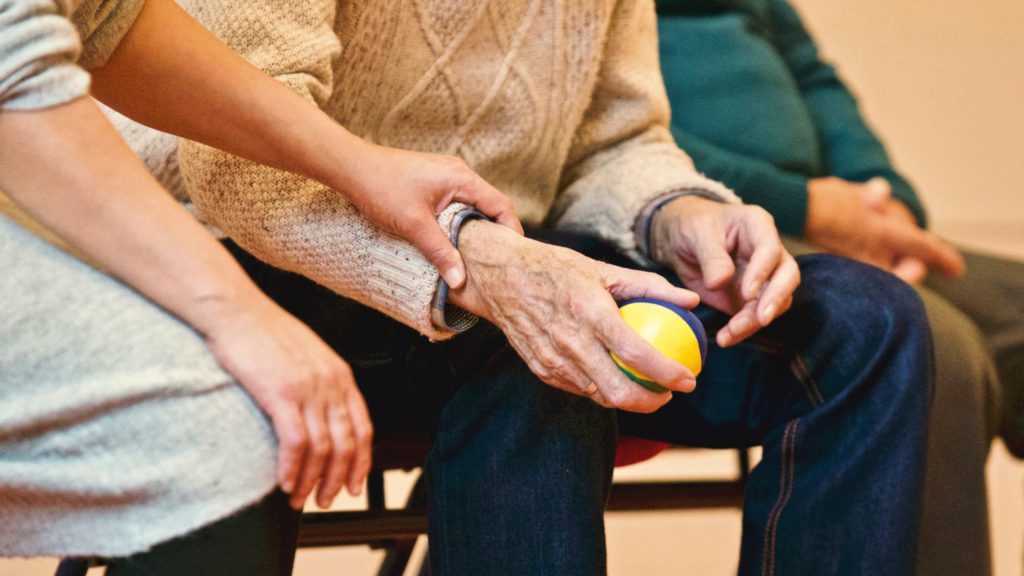Project Lead

Dr Wifak Gueddana
Teaching Fellow, Digital Economy and Society, King’s College, London
Contact: wifak.houij_gueddana@kcl.ac.uk
Co-investigators
Dr Kendra Briken, Chancellor’s Fellow at University of Strathclyde; Dr James Stewart, Lecturer in Science Technology and Innovation, University of Edinburgh; Prof. Rob Procter, Professor of Social Informatics, University of Warwick; James Ravenscroft, PhD Student, University of Warwick and Chief Technologies Officer @ Filament Consultancy
Supporting Partner(s)
Duncan McCann and Miranda Hall (New Economics Foundation)
Project timeline
Start: September 2019
End: April 2020
A vulnerable and hidden workforce
In the UK, women make up over half of gig workers but their experiences have been overlooked in public debates that tend to focus on male-dominated platforms such as Uber and Deliveroo.
Some of the most vulnerable in society: migrant and ethnic minority women working in traditionally ‘female’ or reproductive roles (domestic care and sex work) are increasingly providing their services through on-demand platforms or online marketplaces.
This work is taking place in already ‘hidden’ workspaces, raising concerns about the conditions of domestic and care workers and their social and economic vulnerability. For example, reports show that caregivers are often paid at levels too low to adequately care for their own families. They are almost universally excluded from coverage by labour laws and usually work without any kind of agreement or contract, written or oral, with their employers.
Research on digital transformations and the future of the labour market has so far largely overlooked the implications for this vulnerable population, and this gap in the research limits the ability of policy-makers, trade unions and campaigners to understand the broader labour market implications.
How are the vulnerabilities and opportunities of platform work shaped by gender, race and class?
This project aims to …
… identify challenges and opportunities for migrant and BAME women and other vulnerable groups using platforms in the gig economy. Findings will be shared with key stakeholders, paving the way for new technologies that will focus on equity as well as efficiency.
Specifically it will …
- Shed light on ‘invisible’ labour in the platform economy, focusing on typically ‘feminised’ labour like cleaning and caring, that is done usually in the client’s home.
- Use alternative online data sources and develop a methodology to engage participants who are otherwise difficult to reach.
- Create a cross-disciplinary research network including policy and academic partners.
The research will explore parts of a vulnerable gig economy labour force through alternative forum data and interviews. This hidden labour force works mainly in isolation but many post online, in fora and social media dedicated pages to seek support, share experiences, and organise. The researchers will use these online conversations to echo their voices and understand how they use technology and apps, what kind of problems they experience and what coping tactics they have developed.
The innovative use of forum data will inform the development of a toolbox leading future research on new job/role typologies, working practices and strategies that contribute to our understanding of the gig economy more generally and to implementing solutions and policy recommendations
Then, through workshops and policy roundtables, the findings will be shared and key challenges identified with the people concerned to fuel future grassroots campaigns, inform policy and shape the design of new technologies. The New Economics Foundation will ensure that the findings are disseminated in an accessible and engaging format to key stakeholders and new policy networks.
This project’s social impact is that …
Trade unions and campaigners representing migrant and BAME women or other vulnerable groups will be able to resist transformations that will disempower workers;
Policymakers will have the tools to introduce new regulations to protect workers in these areas and ensure that existing regulatory frameworks are enforced;
Various stakeholders will have the tools to co-create the next generation of platforms that offer ‘decent work’.
It is innovative because …
the project focuses on undervalued and ‘invisible’ reproductive work performed by a largely feminised and immigrant workforce which is absent from existing academic and public discussion;
the methodology draws on alternative sources of evidence that cut across platform boundaries and centres on the lived experience of workers, representing a departure from the ‘platform-centrism’ that has dominated digital labour research.
the cross-disciplinary multi-stakeholder collaborative nature of the research overcomes the limitations of one specific disciplinary view or policy-led perspective.
So Far …
Researchers have uncovered ambiguity as to who the homecare workers are, and have focused on two categories.
The first consists of people who advertise their services as in-home carers, housekeepers, cleaners, child-sitters, cooks or DIY workers on platforms such as care.com, UrbanSitter, Childcare.co.uk etc. For example Ms Baya, who works part-time as a home carer and looks after her son, has also created two separate profiles on care.com – one as an elderly carer and one as a childminder.
The second category includes people who use platforms for work because personal care responsibilities (for children or relatives) or special needs prevent them from working regular hours. For example Elsie cares for her father who has advanced dementia and supplements her government benefits by working as a blogger, life-style writer and content manager across multiple platforms such as Upwork and fiverr.
Research disciplines and policy research often separate these two categories of home carers (paid and unpaid). However, the artificial division of work and care is blurring as many parents and carers are now working online and through platforms, and the categories are beginning to overlap as non-professional carers like Elsie use platforms to capitalize on personal experience, advertising both domestic and other services. In the same way, professional homecare workers like Baya do other platform jobs between shifts. The digital labour of feeding websites personal data and maintaining online profiles is crucial for them to get paid work.
The project has divided empirical work into two stages, first, forum data analysis, and second, focus groups. So far, thousands of discussion threads have been collected from forums such as Reddit, moneysavingexpert.com, mumsnet.com and carersuk.org; thus developing an alternative data source – that is, data generated not by platforms but by the workers themselves. A scalable methodology to enable the analysis of key topics and themes across threads and online forums has been developed and the team is working on an analysis prototype applicable across forums to complete a more systematic mapping of topics.
Next Steps …
Visual outputs of the analysis will be produced with a view to sharing them with key stakeholders, such as trade unions, homecare workers and professional trusts during group discussions and focus groups.
Explanation of key terms
Gig-workers: The gig economy is a way of working that is based on people having temporary jobs or doing separate pieces of work, each paid separately, rather than working for an employer: workers do odd jobs whenever they can and can find it difficult to make a living, although some enjoy the flexibility.

